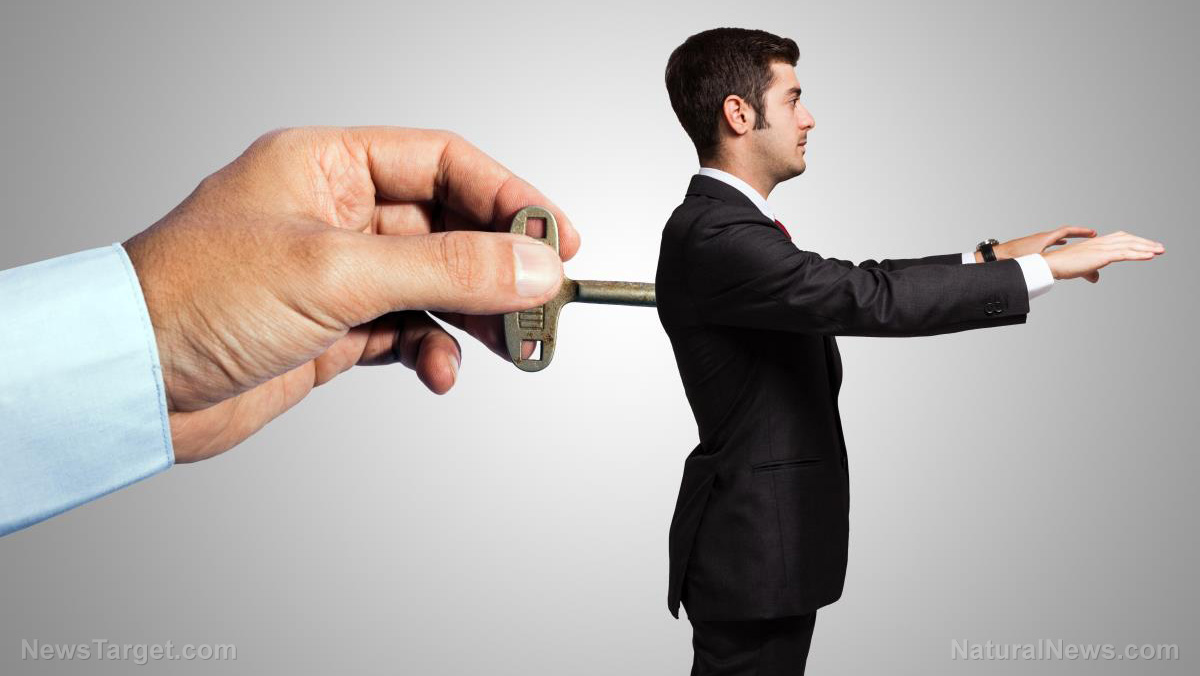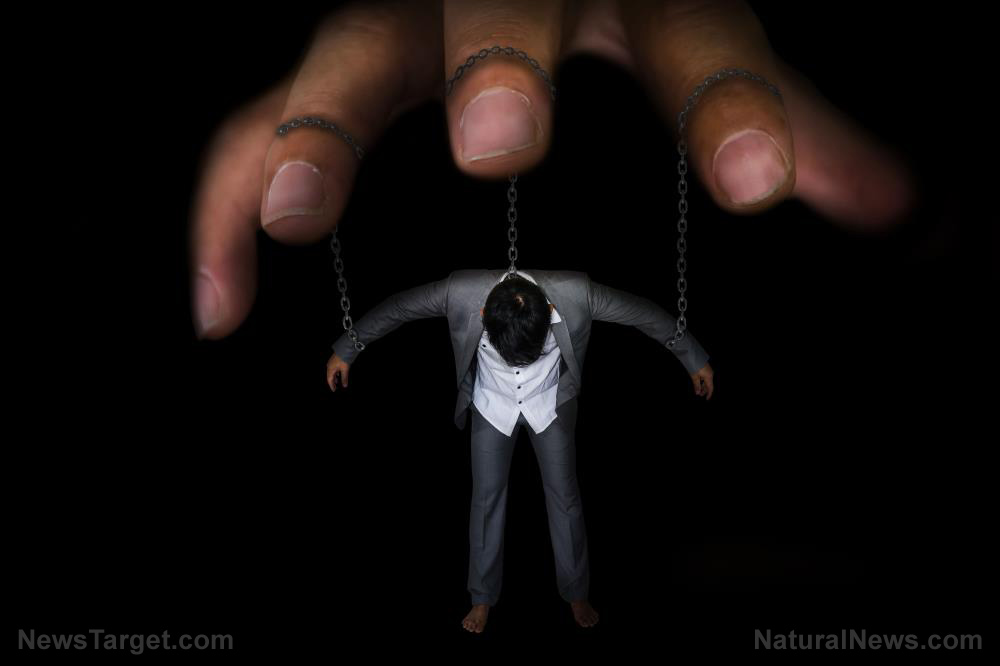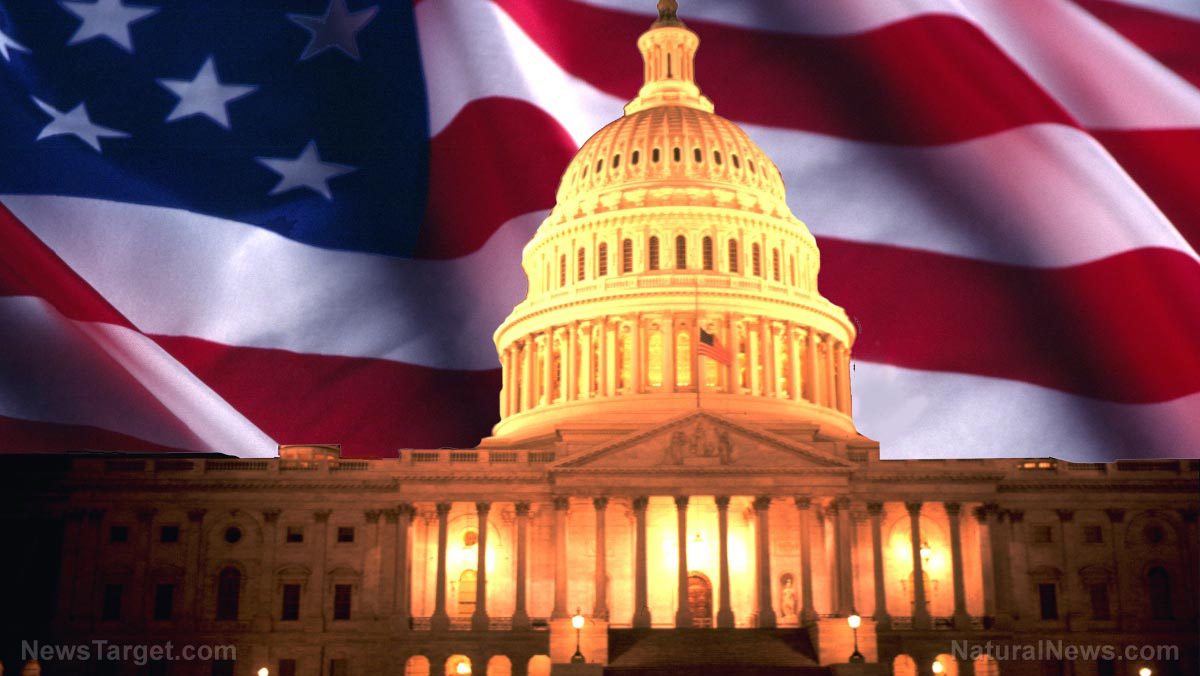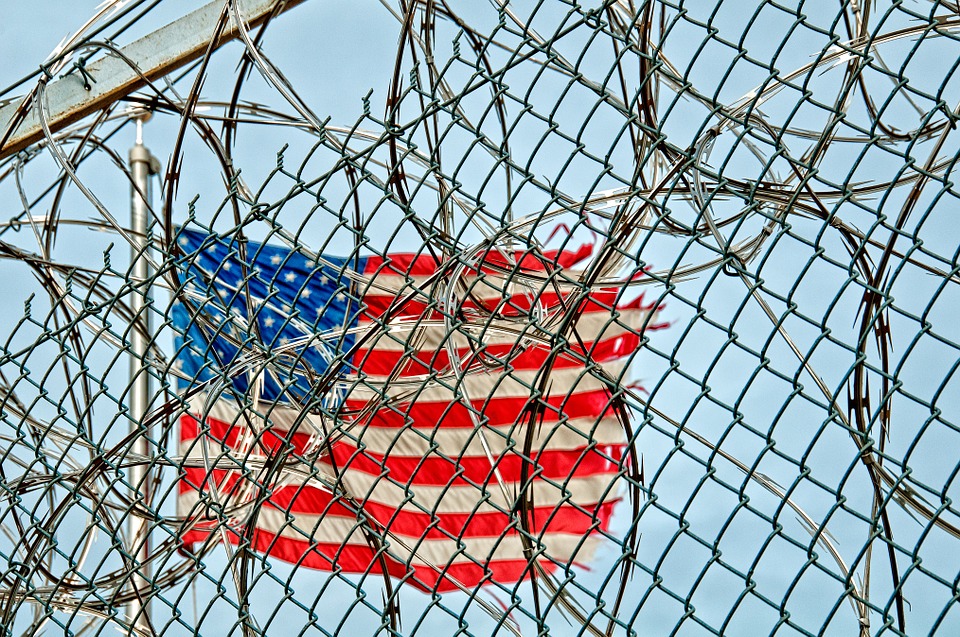Individual freedom or government slavery; What should be an easy choice is a challenge to so many
07/10/2022 / By News Editors

In considering our Day of Independence in this year 2022, we have much to reflect on and to contemplate. The last two years have seen an erosion of individual liberty like unto nothing in our history. Freedoms that we have taken for granted for most of our lives have been curtailed in ways great and small.
(Article by David Robb republished from TheBlueStateConservative.com)
Our freedom to gather was blocked by edict of government officials. Our freedom to speak our thoughts without fear of censure has been subjected to attack from private and government entities alike to the extent that livelihoods have been denied and some have even been imprisoned. Our rights to engage freely in commerce have been subject to arbitrary limitations of unelected bureaucrats, while our system of justice has become two different systems – one for the elites, and one for the rest of us.
We have an administration that has assumed power as a result of criminal election fraud, yet despite massive evidence, we seem unable to properly prosecute the guilty and correct the situation. This illegitimate administration has taken action to destroy the economic well-being of the country by cutting off our sources of energy necessary to every aspect of our lives, in the name of an imaginary crisis, while flooding the economy with inflation promoting cash.
Our representatives no longer seem to operate with our best interests – the best interests of the country – at heart, but rather serve the interests of themselves and the desire of their parties for more power. Instead of seeking common interests and working to bind up the deep wounds that exist in our society, too many parties look for differences and ways to set one group against another, shattering any common ground.
Not just us
Although the changes here are most noticeable to us, the destruction of individual liberties is happening worldwide. The Heritage Foundation has been tracking economic freedom across the world for almost thirty years. The 2022 issue of their Index shows the US has dropped to 25th place among the world’s nations, while nearly every country has shown a reduction in its score.
Looming over the world is the specter of the Great Reset – the evil brainchild of Klaus Schwab that sets forth a blueprint for a global socialism where all problems will be solved, no-one will want, no-one will own anything and we will all be happy. Capitalism will be eliminated and all resources will be distributed fairly and equitably. Education, healthcare, food, housing, transportation, and everything else will be free. How all those “free” goods will be produced, and who will provide the “free” services are questions left unanswered.
Nevertheless, the ideas are seductive, and popular among those who combine idealism with lack of experience. The traditional answer across thousands of attempts to create such a system in environments ranging from small communes to entire nations, is forced employment. In other words, some authority such as a government determines what work must be done, and assigns available labor to perform it. In order to distribute to each according to their need, some must be compelled to produce according to their ability. People quickly learn to have little or no ability, but lots of need.
Who else has owned nothing?
There have been extended periods in history when the bulk of the populace owned nothing, and were, by many accounts, happy. They went by other names than Socialism, but were in large measure indistinguishable from that system.
One of these systems that operated for hundreds of years went by the name of Feudalism. While there is currently debate about what exactly Feudalism is, in the classical sense it is where the land and its inhabitants are owned by a nobility. The serfs who lived on the land and worked it to produce crops didn’t own the land or anything else, but supposedly they were happy. There are lots of medieval paintings of peasants laughing and smiling and dancing at fairs and celebrations, so they must have been happy.
An enduring institution
A much longer lasting system that has existed for almost the entirety of human history is slavery. It is said that ancient Athens, the home of democracy, was almost forty percent slaves. I visited a fortress in Sweden that was built by Norwegian slaves. The Bible makes frequent mention of slaves throughout the Old Testament. After the Islamic takeover of North Africa, a market for black slaves opened up when certain African tribes discovered that not only could they take over their neighbor’s territory, but they could make a nice profit by selling off the former inhabitants to Muslim slave traders. In fact, it wasn’t until 1962 that Saudi Arabia made slavery illegal, although it is reported to still continue in some locations.
Slaves own nothing, Everything is provided free to them – food, housing, clothing, medical care, education – everything. All they have to do is occasionally work at tasks set by their owners and perform other specified duties. Amazingly like life under Socialism where the State is the slave owner, although the subject people aren’t generally referred to as slaves.
Of course, we all know that slaves were happy people. They had festivals, and musical gatherings, told entertaining stories, and generally had a good life free from the concerns of making a living and having to decide what to do each day. The burden of all these decisions fell on the slaveowner, or in the case of Socialism, on the bureaucrat responsible. A dirty job, but someone has to do it.
Where shall we go?
As we stand now, two paths lie before us. One leads to an increasingly authoritarian state – a state that provides for all our needs at the cost of unquestioning obedience.
The second path leads to restoration of freedom, prosperity, personal responsibility and the ideals of liberty and justice for all. It is a path not only of restoration, but also of innovation, creation of new wealth and promotion of the well-being of both the nation and of its individual citizens.
There is a false middle path that appears to combine the best features of both, where there are lots of “free benefits”, but where the costs of such are paid with a growing and thriving economy. This path always leads back to the first road as more and more “free” goods are commanded and used to purchase more and more power for those who would distribute such largess.
The Road to Serfdom
This heading is the title of a book by F. A. Hayek. He gives a powerful analysis of the dangers of this particular road and discusses the seductive appeal it holds. Whether through fear or through laziness, there are many today who believe freedom to be overrated, and even dangerous.
Many, confused by a multitude of challenges at all levels of life, would abdicate their responsibility in favor of following some appointed expert who claims to know the proper course for our lives. We have seen it with medical “experts” in the recent pandemic, where their “solutions” not only did not affect the spread of disease but had the unintended consequence of nearly destroying our economic structure. Similar “experts” are espousing courses of action for our economy, our national security, and even our climate.
Too much freedom?
There is a growing impression that our problems are due to too much freedom – too many differing ideas of a proper course and a corresponding lack of shared direction. The solution as they see it is to eliminate those divergences and to force acceptance of one viewpoint and one course of action. Once we are aligned on a common goal, we can work on refining it to attain the perfect state of society.
Others have taken to heart the words of a famous song of the sixties where “freedom’s just another word for nothing left to lose.” and see no point in holding on to something that has no value. They see only freedom to fail, and fear ending up like so many of the obvious homeless we see every day. Better to do as we are told and be taken care of than end up destitute on the street.
One has to ask, though, why there is such a recent homeless “problem”. Are we failing to address the problem effectively because they serve as a visible threat of what might happen to us if we step out of line? The poor have always been with us, but never have they been such a visible problem, even during the dustbowl ’30s, as they are today. Why?
Snake oil cures all ills
For all these and many other reasons, there has been a growing interest in Socialism. Capitalism is represented as exploitive and the source of economic inequalities and even injustices. Only, as the proponents say, by distributing wealth evenly and justly, can we have a fair and equitable society free from all current evils.
But who shall decide what is fair, what is equitable? How shall the wealth be collected, and by whom and by what means? What happens when it comes time to generate more wealth, when existing wealth has decayed, been consumed, or squandered? Shall we sink quietly into a bedrock level of poverty like Cuba or Venezuela or so many other examples?
Will we have to resort to an authoritarian State that will use force to allocate division of wealth, and like Stalinist Russia or Communist China, conscript the population into forced labor when voluntary methods fail? Isn’t that what slavery is all about? Is this really the path we want to follow?
The path of freedom
Make no mistake, this is not an easy road. There are many powerful interests today who adamantly oppose this path. Those who hold power now will not lightly surrender it. They fear a red wave of reform in November, and are doing all they can to avoid it. We should not trust that they would actually allow a fair election in five months, any more than they did in 2020. They have many options available, ranging from repeating the election rigging of 2020 to declaring a national emergency to martial law. Don’t imagine only one will be used.
It would be nice if our opponents would abide by law and tradition and transfer power gracefully, but given all that has transpired these last six years, that is highly unlikely. Is all the talk of the Left being terrified of what might happen in November just a smokescreen to distract us and lull us into complacency? Are we counting unhatched chickens?
The first order of business
Things have progressed to the point that the first order of business must be a cleanup of the mess we have allowed to accumulate over the last several decades. Given the proximity of the November elections, it is of highest priority that we do what we can to ensure the elections are as fair as we can make them and to thwart the efforts of those who would subvert them. Very few meaningful reforms have been enacted since the 2020 election, so many of the fraud mechanisms are still in place
Read more at: TheBlueStateConservative.com
Submit a correction >>
Tagged Under:
enslaved, freedom, government, independence, Liberty, obey, slavery
This article may contain statements that reflect the opinion of the author
RECENT NEWS & ARTICLES
COPYRIGHT © 2017 OBEY NEWS




















